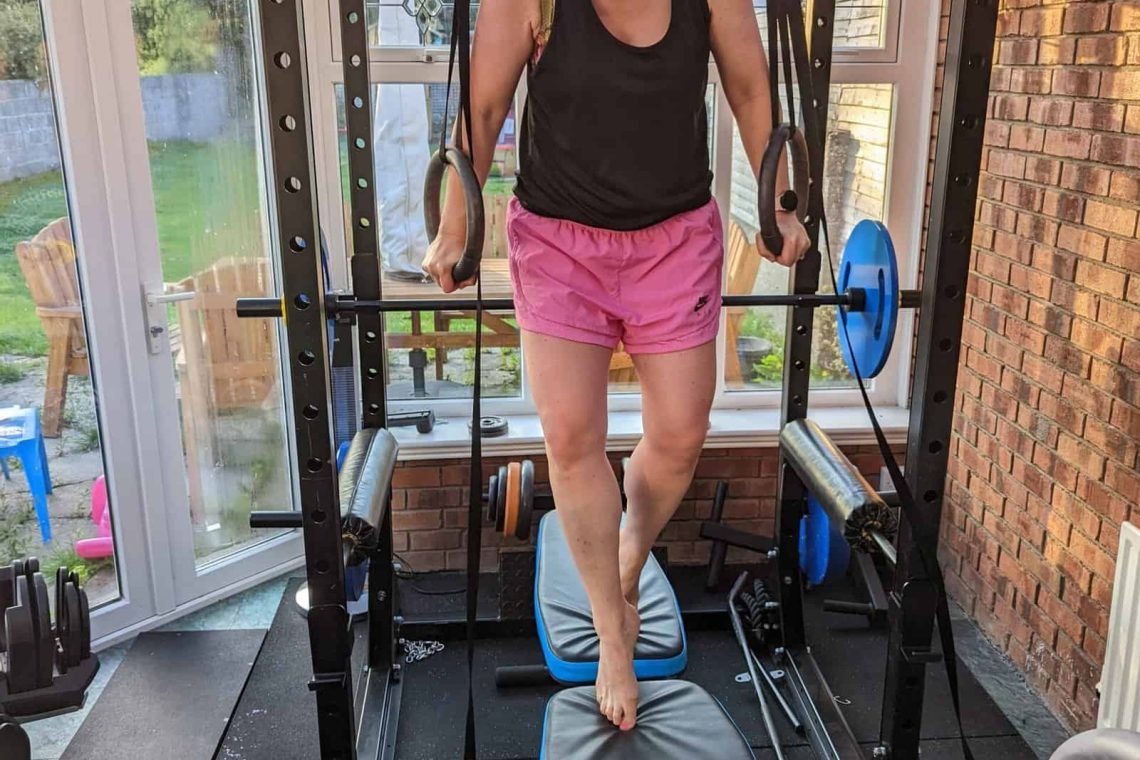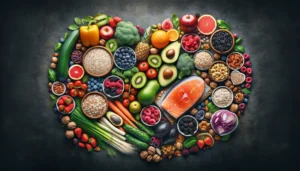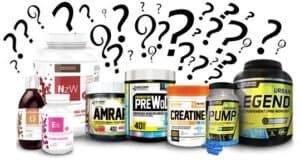Creatine is a super popular, and a trending supplement. What makes it stand apart from the other supplements out there is that creatine is one of the most widely researched and effective supplements available. Most other sports supplements do not have much evidence backing them up. Most other supplements are expensive and nearly completely useless.
However, it’s important to note right at the start, that it’s not as powerful as doing 150 min of cardio a week or strength training twice a week or sleeping 7 to 9 hours or even eating your vegetables. No supplement will ever be as good for you as doing even one of the fundamental health aims regularly.
Creatine plays a crucial role in energy production, particularly for high-intensity activities like sprinting and weightlifting (think explosive movements). But beyond sports performance, creatine may also support brain health and muscle mass preservation/ growth.
In this guide, we’ll cover everything you need to know about creatine, from how it works to its effects on different types of athletes and even older adults. Remember, science is offensive so if you even think you could be in the ‘older person’ category, you are.
What is Creatine?
Creatine is a naturally occurring – our body makes it itself (1 gram a day) and we eat it through our food (1 gram a day; sources include red meat and some fish). It’s made from amino acids (building blocks of protein). The body produces creatine using the liver, pancreas, and kidneys. So ultimately, 2 grams is eaten and made each day, and then people generally supplement with 3-5 grams. We then store about 120g in the body at any one time, of which 95% is in our skeletal muscles (e.g. leg and arm muscles).
Creatine tends to scare people a bit, I’m not sure why. Perhaps the negative and unwarranted press it gets. But, considering our body makes it, and we eat it, supplementing it is less of a big deal when you knwo this. It’s a bit like omega 3 supplements, our body makes a little bit of it, we may eat 450mg through oily fish and then supplement with 1000mg using fish oil supplements (or algae if vegan). So, same same but different. People supplement it to get additional beenfits when its not feasible to get enough through food.
eg. 0.5g in 100g pork, 0.45g in 100g beef, 0.45g in 100g salmon, 0.3g in 100g cod, 0.025g in 250ml milk
Once inside the body, creatine is stored in our muscles as free creatine or phosphocreatine. The primary function of phosphocreatine is to regenerate adenosine triphosphate (ATP), the body’s main energy source. This is especially important for short bursts of high-intensity activity, as ATP levels deplete quickly. The body can make more ATP/ energy from fats and carbohydrate, but it takes time. Making it from creatine is quicker, and that’s why we use up a lot fo creatine in short, quick movements.
Since the body’s creatine stores are limited—typically only enough to fuel about 10 seconds of intense exercise—supplementing with creatine can help increase these stores by up to 30%, leading to improved performance.
Forms of Creatine
There are several forms of creatine supplements, but the most researched and cost-effective is creatine monohydrate. Other forms, such as creatine ethyl ester or creatine hydrochloride, have not been proven to be more effective. You can also get it in gummies and capsules, but they tend to be more expensive. Creatine powder barely tastes of anything, and you simply add it to water or your shake, so I wouldn’t even say capsules or gummies are beneficial from that point of view.
Recommended Dosage
- Standard dose: 3-5g per day
- Loading phase (optional): 20-30g per day for the first 5-7 days, then 3-5g per day
While the loading phase can help saturate muscles more quickly, it’s not necessary—taking a smaller dose consistently over time achieves the same effect.
Benefits of Creatine for Athletes
Now that you know a little about creatine you can understand the logic – increasing creatine increases ouur production of ATP which is an important energy source for high intensity exercise. It you can train harder you can perform better and it you can perform better you can improve training adaptations.
Power and Strength Sports
Creatine is especially beneficial for strength and power athletes, where performance depends on short bursts of intense effort (think < 30 seconds).
- Improves muscle strength (8% greater) and power
- Enhances resistance training adaptations
- Increases muscle mass over time (20-30% increase but need to consider water retention)
- Sprinters (100m, 200m)
- Weightlifters and powerlifters
- Sprinters in swimming
Intermittent Sports (Team Sports & Combat Sports)
Creatine is also useful for sports requiring repeated bursts of high-intensity effort, such as:
- Football (Soccer, GAA – football and hurling)
- Basketball
- Rugby
- Hockey
- MMA, Boxing
How does creatine help?
- Improves repeated sprint ability
- Enhances jump height and explosive power
Endurance Sports: Does Creatine Help?
Unlike in strength and sprint sports, creatine’s benefits in endurance sports like long-distance running or cycling are less clear. So, the longer the exercise the less likely it will help, generally speaking. However, research suggests that creatine can be beneficial in certain scenarios, including:
- Sprint finishes and breakaways
- Hill climbs in cycling
- Recovery from long training sessions
Possible downside?
Creatine increases water retention in muscles, which can increase body weight. This might not be ideal for runners and cyclists where weight is a factor. Of course, this is concern when people need to make weight or weight is linked to performance. However, studies suggest this doesn’t negatively impact performance in cycling or swimming.
- Takeaway: Endurance athletes can consider creatine for high-intensity race situations but should monitor body weight changes.
Creatine for Muscle Health & Ageing
Creatine isn’t just for athletes—it’s also beneficial for older adults looking to preserve muscle mass and strength as they age.
Creatine & Muscle Preservation
Ageing leads to muscle loss (sarcopenia), which affects strength, mobility, power and overall health. Studies show that combining creatine with resistance training helps:
- Increase lean muscle mass
- Improve strength and functional ability
Creatine alone may not build muscle, but when paired with strength training, it can significantly enhance muscle growth and maintenance in older adults. But MOST of the muscle gained will be due to the work you do in the gym and not your diet or creatine supplements. Portein is considered about 10% of the story and doing strenth stuff (progressively lifting heavier) does 90% – as per latest studies.
Creatine & Bone Health
Creatine plays a role in bone metabolism and may support bone strength in older adults. However, research is mixed—while some studies show improvements in bone density, others do not. So, I wouldn’t be too confident in this yet. But, if it helps strength training to build muscle, and muscle helps to build bone, the link is likely there. But the % benefit you get isn’t known so we can’t prescribe it based on current evidence.
Creatine & Brain Health
Our brain is super busy and takes about 20% of our calories to fuel itself each day. Similarly to our skeletal muscles, the brain uses creatine to keep our ATP stores up due to high energy demand. Emerging research suggests that creatine may support cognitive function and memory in older adults. This is especially promising for individuals at risk of neurodegenerative diseases such as Alzheimer’s (pilot study, early days, but excited to see follow up studies). However, not every study has shown that taking creatine increases brain creatine – I mean 9 out of 12 have but not every single one (there may be more since my last lit review!). And, in 13 out of 16 studies they’ve shown that creatine has helped with cognitive fuction, especially when sleep deprived or physically/ mentally exhausted (now you see why women in their 40s and 50s are all about creatine these days 🙂 Menopause, life demands…)
Creatine Side Effects & Safety
Creatine is one of the most researched supplements and is safe for long-term use in healthy individuals. There are decades of evidence to suggest this. And, they’ve looked at people who have taken in over a longer period of time and again show no concerns in health people. Us Dietitians refer to it as the ‘safety profile’ and it’s considered to have an excellent safety profile.
Common Myths vs. Scientific Evidence
❌ Creatine causes kidney damage → No evidence supports this in healthy individuals.
❌ Creatine leads to dehydration or cramping → Studies show no increased risk.
❌ Creatine causes hair loss → There is no strong evidence linking creatine to hair loss.
Possible Side Effects
- Water retention & weight gain (1-3kg) – not experienced by everyone!
- Mild stomach discomfort (when taking high doses) – sometimes rectified by reducing the dose.
To avoid stomach issues, stick to 3-5g per day and take with food or plenty of water.
Should You Take Creatine?
Take creatine if you:
✅ Want to improve strength, power, or sprint performance
✅ Engage in resistance training or intermittent sports (aka you train with purpose)
✅ Are a vegetarian or vegan (since plant-based diets have lower creatine levels)
✅ Are an older adult looking to maintain muscle mass or potentially improve cognitive function.
Creatine may not be ideal if you:
❌ Are concerned about minor weight gain (e.g., distance runners)
❌ Have pre-existing kidney disease (consult your doctor first)
Final Thoughts: Is Creatine Worth It?
Creatine is one of the most effective and safest supplements for improving strength, power, and muscle mass. It is particularly beneficial for athletes in sprint, power, and intermittent sports, but also has promising applications for older adults and even brain health.
For most people, a simple 3-5g daily dose of creatine monohydrate is a cost-effective (example 25e for 300g) and proven way to enhance performance and recovery.
However, nothing is as beneficial as training. And, no supplement will ever match doing the basics in terms of result – sleeping 7-9h, minising alcohol, eating lots of fruit, veg, proteins and wholegrains and drinking enough water.
If you’re looking for personalised nutrition advice on supplements, book a consultation with one of our dietitians today.











